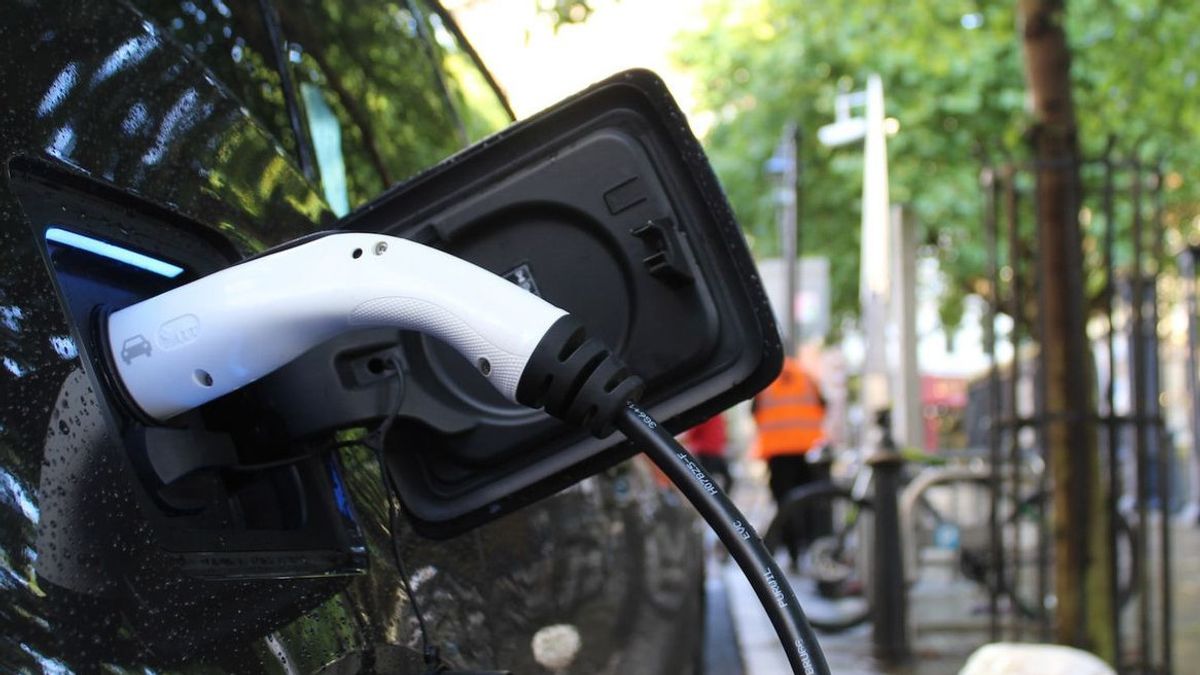JAKARTA - The Coordinating Ministry for Maritime Affairs and Investment (Kemenko Marves) claims that the emissions of vehicles caused by electricity are lower than oil-fueled vehicles despite the transfer of emissions to coal-fired steam power plants (PLTU).
"The problem of reducing emissions is that many are asking whether it's true that it doesn't reduce emissions because these electric cars don't have emissions, but do they move to PLTU? That's right to move, but the emissions are less," said Deputy for Infrastructure and Transportation Coordination of the Coordinating Ministry for Maritime Affairs, Rachmat Kaimuddin, as reported by ANTARA, Wednesday, May 31.
Rachmat claims that the use of batteries as motor propulsion is more efficient than fuel oil (BBM). He also gave an example of a car spending 1 liter of gasoline to reach a certain distance, so the electric car is equivalent to 1.2 kWh.
The difference in magnitude lies in the resulting emissions. The calculation is that 1 liter of gasoline if burned will issue 2.3 kg of CO2. Meanwhile, electric cars that are assumed to use 100 percent energy from PLTU will only produce 1.2 kg of CO2 emissions.
"Why? Because earlier, the combination engine (fuel car) was not too efficient," he explained.
In addition to the emission generated by electric vehicles lower, Rachmat also admitted that collecting emissions produced by hundreds of PLTUs is easier than emissions generated by vehicle exhausts.
To collect emissions from PLTU, he said, it could use carbon capture technology, energy transition, and reduce coal power plants. This is much easier than reducing emissions from vehicle exhausts in Indonesia, which amount to 150 million units, namely 130 million motorcycles and 20 million cars.
"This is what needs to be addressed as well that the other is kayakngumpulinreceh, the other is big. So, it's better to be able to handle this big and again being bullied by friends for the transition from green energy," he said.
VOIR éGALEMENT:
On the same occasion, Tenny Kristiana's Associate Teacher of the International Council and Clean Transportation (ICCT) said there was a significant reduction in greenhouse gas emissions from the use of electric vehicles (EVs), even with an energy mix.
Although currently, his party is still calculating the amount of emission reduction by switching from vehicle using fuel (ICE) to electricity in Indonesia, Tenny believes that the emissions produced by electric vehicles will be much lower.
This is based on a study conducted in China as a country with its fuel consumption that almost resembles Indonesia. ICCT recorded a decrease in emissions in China reaching 40' 60 percent. Meanwhile, in India as much as 30'50 percent.
"We are calculating the special emissions for Indonesia in 2035 and 2050, and we will immediately release the consumers. Broadly speaking, we also calculate car data collection, calculate from motorcycles as well. The result is 50 percent reduced by EVcompare with ICE for cars, while motorcycles are around 30 percent," he explained.
The English, Chinese, Japanese, Arabic, and French versions are automatically generated by the AI. So there may still be inaccuracies in translating, please always see Indonesian as our main language. (system supported by DigitalSiber.id)
















